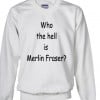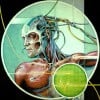Is it more important to develop characters first and then write a story around t
Is it more important to develop characters first and then write a story around them or vice versa?
Whatever works best for you, there are no set rules.
I usually have the main basis for a story first, based on the type of story it is you will also have an idea for the characteristics of the character or charcters in your mind already you just have to develop them.
Again usually one of the characters is going to be yourself, or a facscimile of yourself.
If you create a Super hero then you are going to need a super villian to stop him/her getting bored.
If it's an action story and you have a idea for a situation think about your family and friends and ask yourself how they would react or handle the situation. Would they take charge ? Stand on the sidelines shouting "someone do something !"
"scream...(There's always a screamer !) or just run away ?First off, as a writer you choose what is more important. Will your characters merely be involved to tell a fascinating story you concieved in your head? If so, focus on storytelling and make sure it is what you want it to be.
Still, I always feel that characters develop naturally as a story is written, or at least they should. Basically, as the tone of the story changes, so should your character's personality or attitude. The lead or leads should have changed at least a little (mentally usually, sometimes physically) and that allows for a believable story. Often times the best characters are the ones we create because of the events in the story. Think about all the events in your life since childhood that helped shape who you are now. The events in a fictional person's life cause character development to happen.
Good luck!there are no set rules, but the story must have some sort of structure as you work through, don't believe tales you hear about people sitting down and writing a story straight off, it would have been churning around in the noggin, even subconsciously, for a long time.
It also depends what kind of story you're writing, plot driven, location/milieu driven. or character driven. Something like, say, Indiana Jones doesn't need much in the way of character development, he's the same character from beginning to end; character stories need some sort of change, a development of the character, good or bad, by the end.
Probably the best explanation of story types and importance of character come from Orsen Scott Card, in his how to books, Writers Digest.I used to struggle with this, never truly sure where to start. Once I began writing plays I figured out some things that have become very helpful for straight up story writing.
Characters are the main focus for me, because once you have that nailed down the pieces click into place. I always start with a general synopsis and write that down. Then I make up some people to populate the world I just created. I make a separate document with a list of characters and I give them some flesh. I figure out how old they are, what they look like, where they come from, what they love and what they hate. I spend a lot of time developing the characters. Sometimes I write a lot more about a character than I will ever use, but really nailing it down helps drive the story later.
Then I make an outline, placing the characters into the synopsis and deciding what happens and in what order. During this process other character insights will pop up, and I plug my notes into the character outline to make sure I have all of it.
This sounds like a lot of work, but for me there is no story without well developed characters. Character is what drives the plot, and once the characters are solid they will pretty much tell you what happens next. It has helped me a great deal to do that work first, then the writing of the actual story is faster and cleaner and I am less prone to staring off into space because I am not sure what to do next.I go with the story in my mind. A story flows better for me when I'm excited with an idea. I've tried planning out characters first and never gotten far with it. I don't know who these characters are until they've done something.
I think it can either way. However, stories that are already plotted from beginning to end, sort of Agathe Cristie novels seem mechanical and don't have much life. Stories like Raymond Chandler's which are more atmosphere and character driven sometimes wonder around so much that even the author loses track of what's going on. During the making of the "Big Sleep" movie (a great movie with Bogart and Bacall) the director asks Chandler as to who kill the chauffer, and Chandler's reply was something like, "Hell, if I know."
So I think you can start with a straight story or with just good characters, but you have to allow each to influence the other.Primarily it states that you need to develop your characters, and then work then around the story that you are working. Some people write their stories and develop the characters around their story.
For me writing is a very intuitive experience. Some writers organize every minute detail and story beat on index cards. Others might plan and write out every character's backstory. I've used all those approaches at one time or another but have recently discovered that, for me, too much planning can sap the life out of a story and it's characters pretty quickly. It's a frightening and amazing feeling to sit down and just start writing. While I have a general sense of where the narrative is going to end up, I';m not always sure how I'm going to get there. And that's where the fun starts. If your characters and story are strong enough, you just have to stop thinking and planning to write and just lock yourself in a room and actually do it. Your characters will tell you where they want to go. Listen to them. They will give you your story.
Related Discussions
- 31
Creative writing. Some help please?
by earnestshub 14 years ago
Some time back I tried my hand at creative writing. I tried to use my imagination and write a story based on a real event from my distant past.A friend of mine is a creative writer and I enjoy reading his stuff, and he told me to lay it out better.My problem with writing was I could not move away...
- 7
When writing a short story do you develop the characters first or the plot?
by nataliemarie71 15 years ago
When writing a short story do you develop the characters first or the plot?
- 21
Writing Prompts/Ideas
by jdeschene 17 years ago
I feel like I've seen every possible writing prompt website there is? I want to try something fresh and new. Does anyone know of any fun and exciting writing prompts? I'd love to hear about them.
- 12
What according to you is more important than the other in the story, the charact
by Anusha Jain 13 years ago
What according to you is more important than the other in the story, the characters or the plot?Well stories can be categorized into plot driven and character driven, but in general, what do you think? Characters are more important - well defining them, well portraying them or is the plot itself...
- 16
Where to start on writing a book? Several questions.
by Peeples 13 years ago
Where to start on writing a book? Several questions.I want to write a book (yes I know seems to be the popular thing right now). I really don't care if I sell one copy. This is more for myself since I have been wanting to do so for many years. Where do I begin when I am not the best of writers? Do...
- 53
Turning a short story into a novel length work.
by Chris Mills 11 years ago
Beginning today, I am taking a 26,000 word story I wrote nearly a year ago and expanding it to novel length, whatever that may be. I've tried to let this story go, but it keeps coming back, asking to be rewritten and expanded. I truly love the story. I know, I wrote it, so of...














